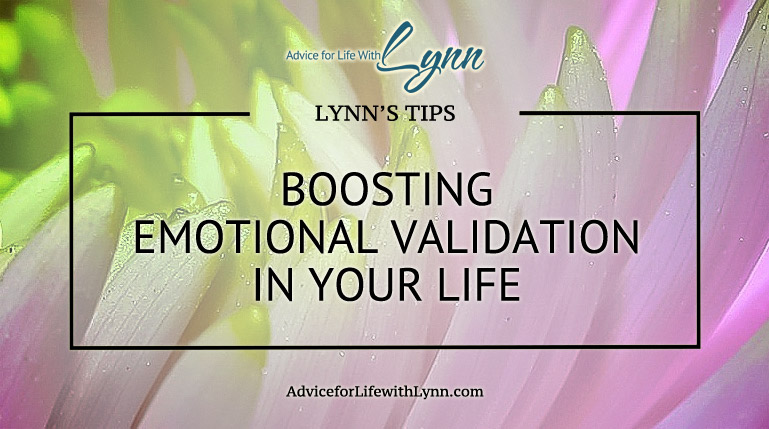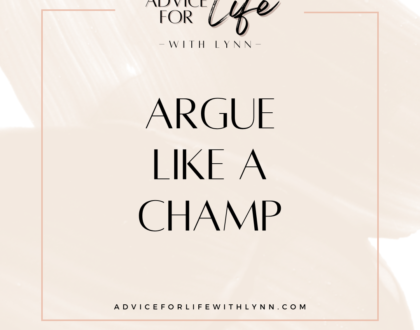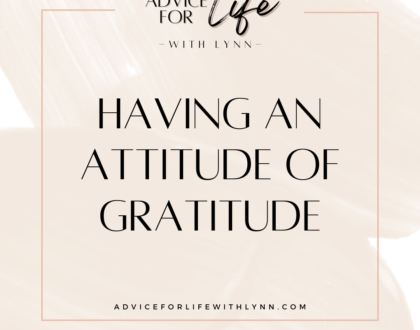Boosting Emotional Validation in Your Life

Emotional validation makes people feel heard and understood. But what does that mean? To understand validation, first let’s examine what invalidation is… because every person on Earth has certainly felt this. Invalidation is when someone’s feelings are negated.
Here are a couple of examples:
You say to your friend, “It’s so hard to date in this town.”
Your friend says, “You’re being so negative! I found Richard right after my divorce.”
You say to your husband, “Why didn’t you invite me to play golf? I would have loved to have gone!”
Your husband says, “What are you talking about? I invite you to everything! This was last minute!”
In both scenarios you were invalidated, and that can make you feel unheard, unsupported, abandoned and unseen.
How to Provide Emotional Validation
To validate someone is to acknowledge and understand what they’re feeling. This does not mean you feel the same way or you agree with their feelings or actions. It simply means you could see where they’re coming from.
Level One Emotional Validation
Acknowledge and understand where that person might be coming from.
Let’s go back to the examples above. Here’s what validation might look like:
Your say to your friend, “It’s so hard to date in this town.”
Your friend says, “Yeah, I can see where you’re coming from… you’ve had some challenging experiences!”
Your friend may not agree with you or have had the same experiences (she met Richard right after her divorce), but she’s acknowledging and understanding your feelings.
Level Two Emotional Validation
Acknowledge and understand where that person might be coming from – even when they’re putting your name on their negative feelings.
This can be a little more challenging. In other words, if they blame you, you don’t engage. You just validate their feelings. A great example of that is the golf scenario.
You said to your husband, “Why didn’t you invite me to play golf? I would have loved to have gone!”
Your husband felt guilty and defensive, then blamed you by saying, “What are you talking about? I invite you to everything! This was last minute!”
This is Level Two Validation because he’s putting your name on his feelings of guilt. This is challenging because we’re programmed to react and engage in the other person’s insanity.
To not engage, instead you must do the following:
1. You take a second and get centered. You realize you’re been invalidated and unheard. Acknowledging this is actually you validating you.
2. You decide not to get sucked into his insanity and decide not take anything personally, which allows you to see where the other person might be coming from. So you might say to him: “I can see how upset you are right now.” That’s all you have to say.
If you wanted to go step further you could say, “I can see how upset you are right now. I can see you feel blamed… that’s a crummy feeling. I’m feel unheard, and could really use some validation right now.”
Even though you were invalidated by your husband — you want to validate the other person because the brain doesn’t know when you’re validating someone else or someone else is validating you. Emotional validation creates the same positive feeling inside, regardless of who’s doing it. You can also validate someone and take care of yourself at the same time.
Taking Care of Yourself
A friend of mine has a daughter who wanted to replace her cell phone with a cracked screen very badly. This was out of her mother’s budget. When my friend told her daughter she wouldn’t be able to swing a new cell phone this year, her daughter broke down in tears, sobbing “I never get what I want! No on cares about me!”
Part of my friend wanted to slap her daughter and tell her she should be grateful she even has a cell phone. What about the children in Africa who have nothing? I suppose you already forgot about all the driving around I do for you! Just snap out of it you spoiled brat! Instead, she decide to validate her daughter’s feelings and try to see things from her perspective — even thought she didn’t share the same feelings.
She said, “I can see how upset you are. And I could understand feeling you don’t get what you want. Not getting what we want is an awful feeling… I hate being told no myself!” Her daughter continued to cry and feel bad, but her mother didn’t feed the negative feelings with defensiveness or attacks. At the same time she took care of herself by not putting herself in financial strain and buying her daughter a new cell phone. She validated the other person and took care of herself.
Just because the daughter felt she doesn’t get what she wants, doesn’t make her wrong. It makes her human.
Remember, this is not easy!
Let me validate all of us and acknowledge this is hard &@#!! I’m working on it every single day, and every single day I take two steps forward and one step back. But at least there’s forward motion!
Remember one extremely important key to all of this — really mean what you say. Don’t just say the validating words and not really and truly understand the person’s feelings – that does no good. If you can’t validate but want to, be honest and true to yourself. You could say, “I hear what you’re saying and I want to validate you but I just can’t right now.”
These exercises in emotional validation retrain the brain to feel heard and acknowledged. And what better feeling is there?
Get My 5 Step Happiness Guide!
Download my five tips to achieve happiness today!
Recommended Posts

Argue Like a Champ
November 09, 2022

Having an Attitude of Gratitude
November 02, 2022

What is in Your Emotional Suitcase?
July 26, 2016
